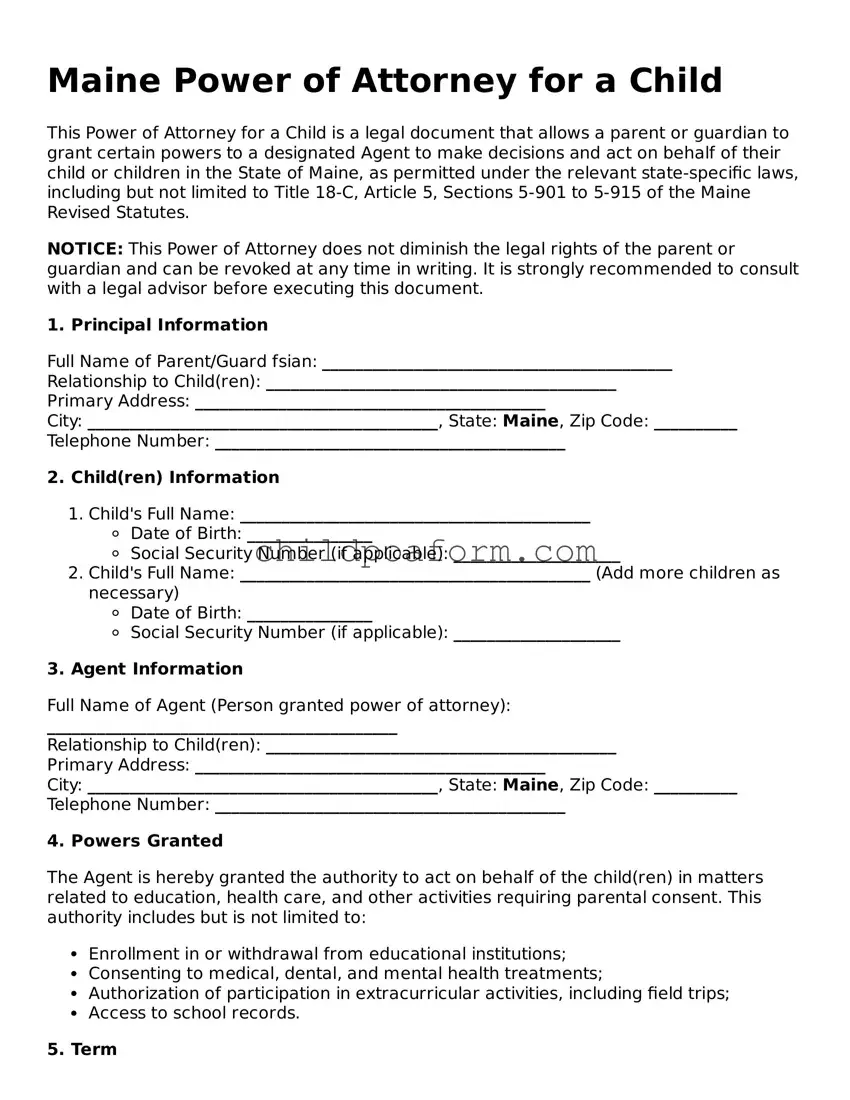Instructions on Utilizing Maine Power of Attorney for a Child
Filling out a Power of Attorney for a Child in Maine is a significant task that grants another person the legal authority to make decisions on behalf of your child. This could encompass decisions about education, health care, and general welfare. It's a process that must be approached with consideration and care to ensure the safety and well-being of the child are prioritized. The steps to complete this form are designed to be straightforward, providing clear guidance on how to appoint a trusted adult as a temporary guardian in your absence. Understanding and following these steps precisely is crucial in ensuring the arrangement is valid and effective.
Here is how to fill out the form:
- Start by locating the most current version of the Maine Power of Attorney for a Child form. This can usually be found on the Maine government’s website or through legal aid organizations within the state.
- Enter the full legal names of the child or children involved at the top of the form. It is important that these names are accurate and match any official documents or identification they have.
- Enter your full legal name (as the parent or legal guardian) and the full legal name of the person you are appointing as the power of attorney (the agent).
- Specify the powers you are granting to the agent. This section may require you to be as detailed as possible about what decisions the agent can make on your behalf. Consider all areas where decision-making authority is necessary.
- Detail any specific powers that are not to be granted to the agent. This is your opportunity to limit the authority given, based on what you believe is best for your child.
- Next, fill in the duration that the power of attorney will be effective. Maine law may limit the maximum duration, so it's important to confirm this time frame before completing this section.
- Both you and the agent must sign the form in the presence of a notary public to ensure its legality. The notary will then complete their section, sign, and seal the document, making it legally binding.
- Finally, make copies of the completed document for your records and provide the original document to the agent. You may also want to inform relevant parties, such as your child's school or healthcare provider, about this arrangement.
Completing the Maine Power of Attorney for a Child form demands attention to detail and an understanding of the responsibilities being assigned. It's a proactive step in ensuring your child's affairs are managed by someone you trust in your absence. Once the form is properly filled out and notarized, the agent will have the authorization needed to make decisions for your child within the scope of powers granted. This arrangement can be invaluable in ensuring the child's continuity of care and support without legal hindrances.
